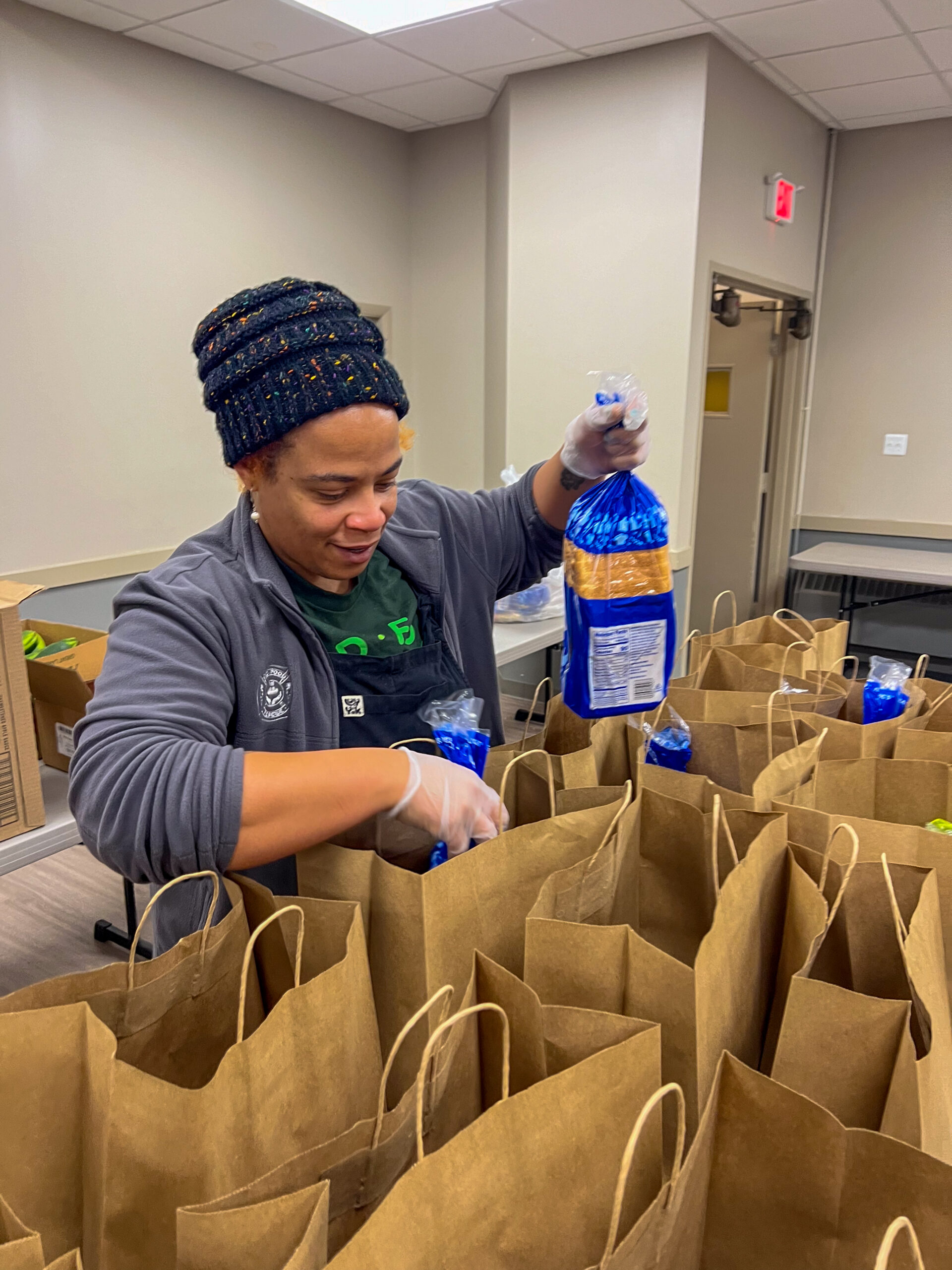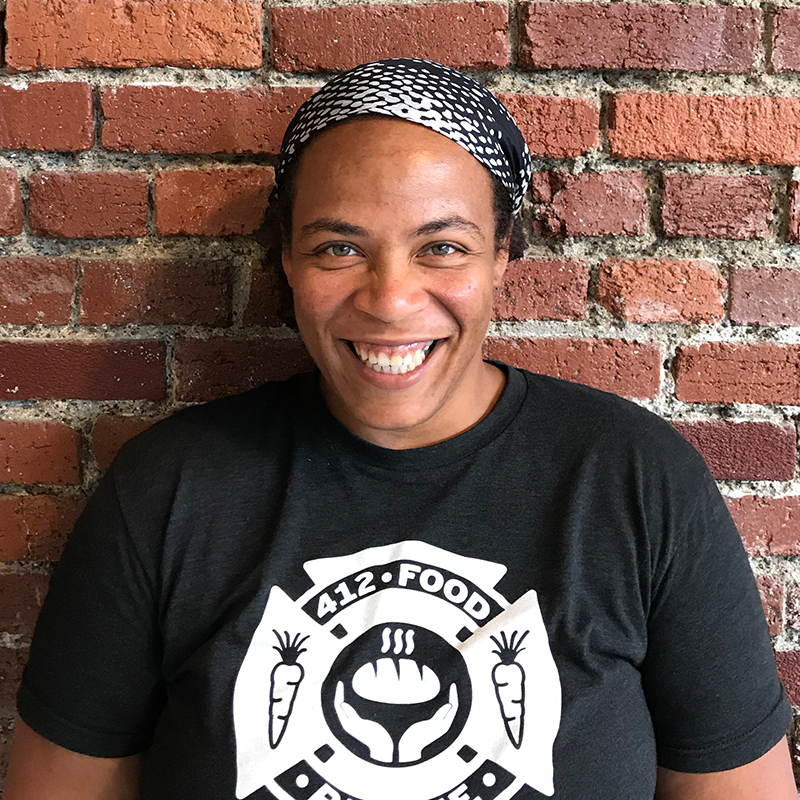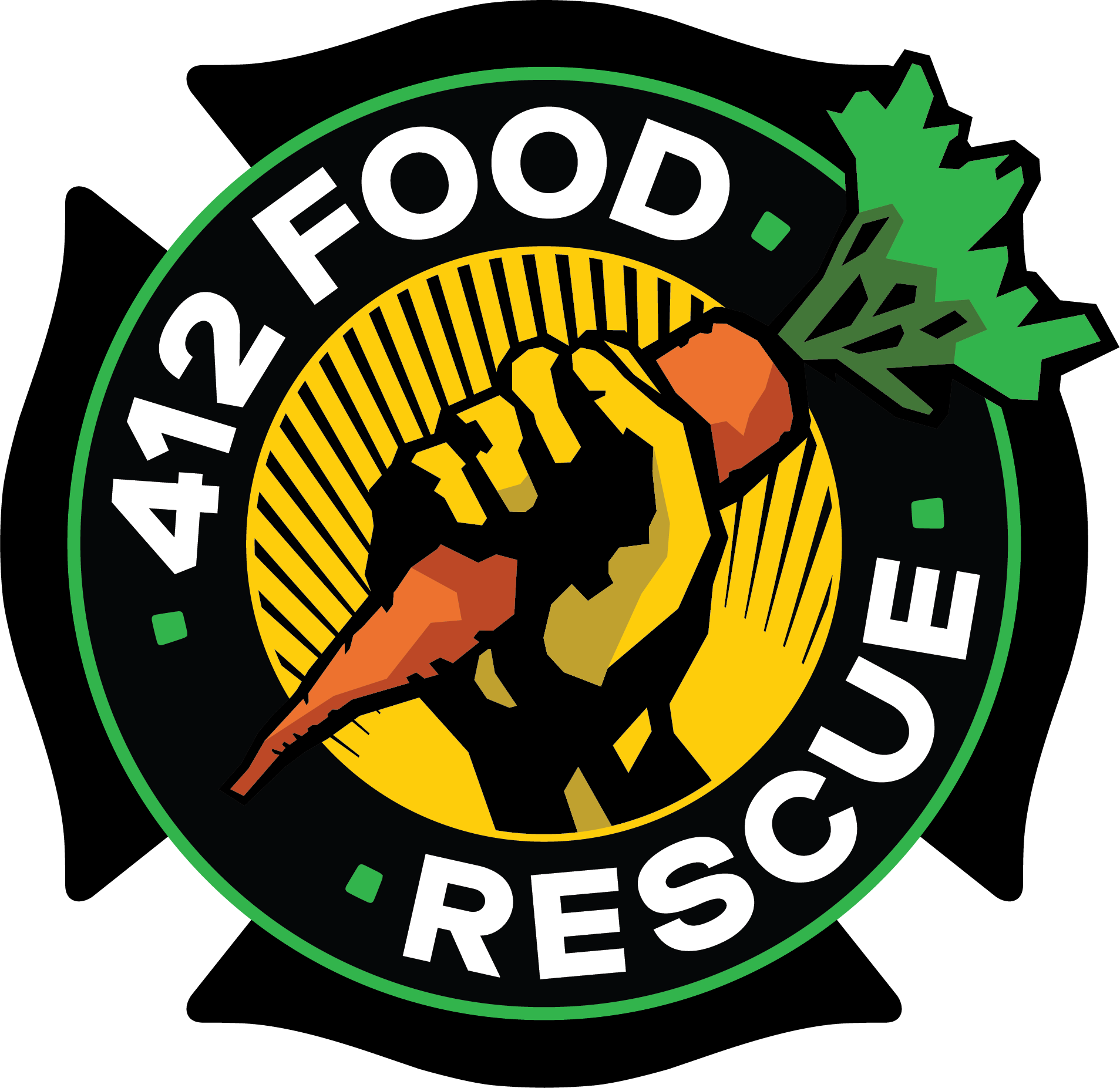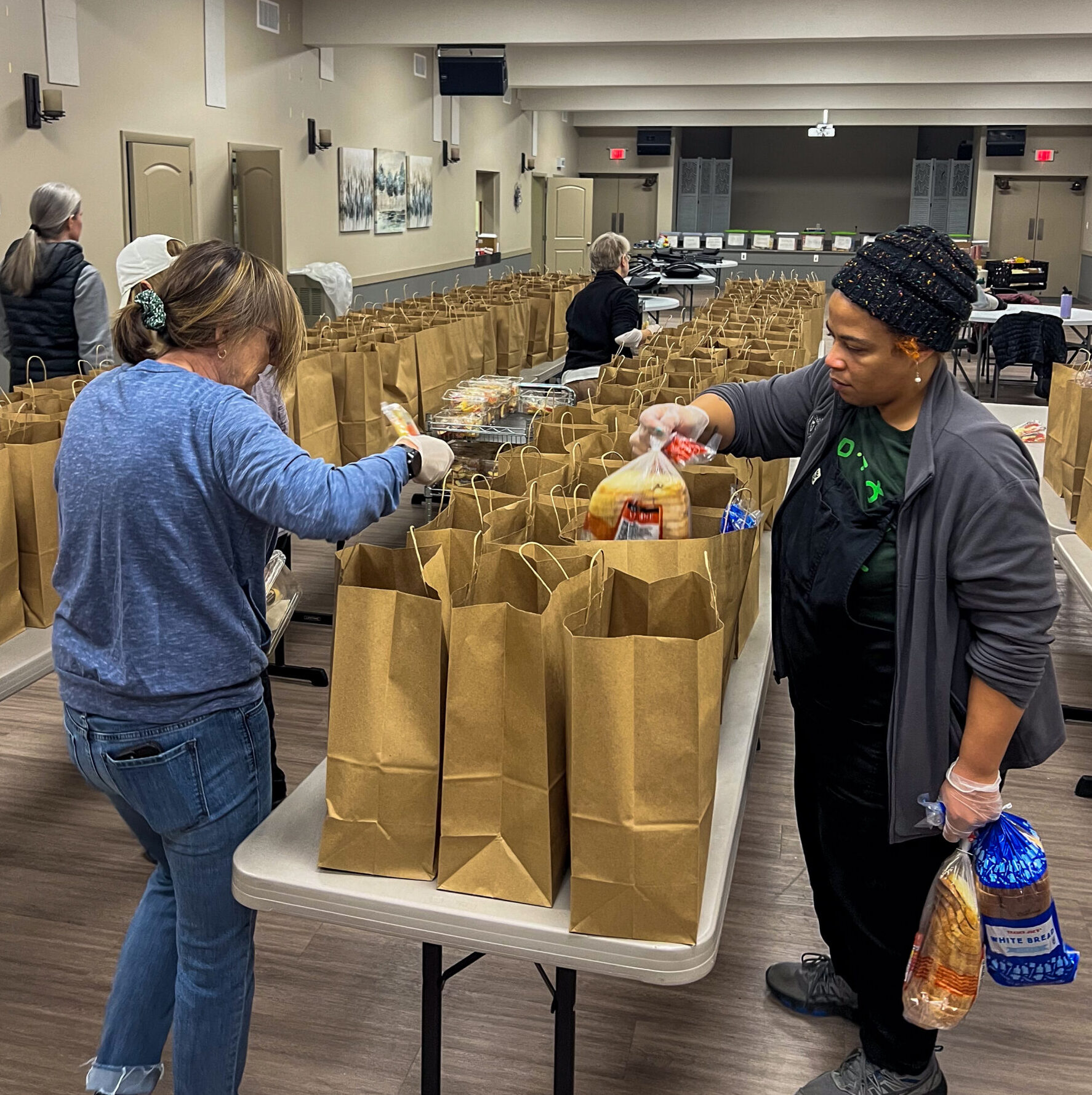Pittsburgh’s Resiliency Through Community Empowerment - My Journey with 412 Food Rescue
A story from 412 Food Rescue’s Alexis Cromer
Joining 412 Food Rescue was more than a decision; it was a pledge to break free from the cycle of waste and be part of a movement that champions equity, sustainability, and compassion. I was drawn to 412 Food Rescue by an acquaintance who worked as the Fleet Manager at the time. Hearing him talk about 412 Food Rescue’s ethos and how it was helping to save food from landfills while feeding folks who were experiencing food insecurity–not knowing where their next meal might come from–struck a personal chord.
Through my past experiences in various food-related industries, I witnessed the alarming amount of waste destined for landfills on a daily basis. I knew it was a problem and knew that it was happening all over, on all levels. I would save food to pass out to people without housing or “gift wrap” bags of food in separate bags that would sit atop dumpsters for the houseless and dumpster divers that could utilize said food. But laws, regulations, and food industry standards discourage such behavior. I also worked with the Food Working Tent at Occupy Pittsburgh and a few iterations of the local chapter of Food Not Bombs. But they mainly focused on food bank-style donations, only working to combat food insecurity but not surplus food being wasted.
Not only had I seen people hungry and helped fellow community members, but I’d also been on hard times myself and knew that no one should be going hungry with how much perfectly good food was being left to rot and sent to a dump. I wanted to leave behind industries that I felt were damaging, cruel, and often toxic to my community at large. I wanted to be in a position to be more of a help to humanity and myself.
Having heard about 412 Food Rescue’s courageous mission to feed people, not landfills, I felt compelled that there was a solution–and I could be part of it. That’s how I stepped forward and got started with 412 Food Rescue, moving from fleet operator and dispatch operator to a program coordinator in charge of the Grocery Bagging Program.
The Grocery Bagging Program emerged from two sides of necessity, bridging the gap between mass quantities of surplus food we were rescuing and community members’ ability to access all that food. We receive lots of bulk-packaged items as donations, but recipients typically do not have the resources to break down and use a bulk donation. So, we take those bulk donations and parcel them out between individual grocery bags that are then delivered to housing sites. Bagging these donations not only results in less food waste, but also more equity for our recipients, which I find very symbiotic.

Currently, we send bags to Housing Authority of the City of Pittsburgh (HACP) sites around the city. By breaking these bulk donations into individual grocery bags, we can supply these recipients with an extra 1,000-2,000 pounds of food per month, removing even more boundaries for those residents in need of access to donations.
With 412 Food Rescue, I found myself drawn to the organization’s mission and a chance to maintain the communal spirit I grew up with in Pittsburgh. The city natives pulsate with a sense of community; neighbors often rally time and again to support one another in times of need. But it’s not just the people – it’s the very land beneath our feet that refuses to be tamed. Pittsburgh’s terrain embodies a fierce independence from the natural wetlands along the rivers, resilient despite centuries of human intervention, to the foothills of the Alleghenies that shape the landscape according to the rivers’ whims. The diverse weather patterns, from gulf winds to polar vortexes, mirror Pittsburgher’s dynamism. And let’s not forget the lush forests teeming with forageable foods and abundant wildlife—a testament to the stewardship of the Haudenosaunee, Lenape, Osage, and Shawnee peoples, to whom this land ancestrally belonged. Once a free and wild frontier, Pittsburgh still echoes with the resilience of its hardscrabble past and the enduring creativity of its people despite the challenges of its industrial history.
As I delved deeper into my role as Program Coordinator for 412 Food Rescue, I found solace and inspiration in some of Pittsburgh’s hidden gems. Places like Frank Curto Park and Frick Park, sanctuaries of nature’s beauty. Schenley Park, with its winding trails and scenic overlooks. The rivers – all 3 – and the clandestine riverside spots passed down from neighbor to neighbor. The cultural treasures in the city – the Carnegie Museums and Libraries. These are not just places; they are the soul of Pittsburgh, each offering a glimpse into the city’s rich tapestry of history, culture, and community.
Reflecting on my journey with 412 Food Rescue and my deep connection to Pittsburgh, I am reminded of the power of community, resilience, and stewardship. As Program Coordinator, I’ve witnessed firsthand the transformative impact of grassroots efforts in combating food waste and addressing food security. My journey extends beyond the confines of our organization – it’s woven into the very fabric of Pittsburgh itself. From the untamed beauty of its landscapes to the rich tapestry of its cultural heritage, this city embodies a spirit of innovation, compassion, and solidarity. As I look ahead, I am committed to expanding our impact, ensuring that no one in Pittsburgh has to go without food.
I am grateful for the opportunity to play a small part in the larger story of Pittsburgh – a story defined by resilience, collaboration, and the unwavering belief that together, we can create a more just and equitable future for all.







